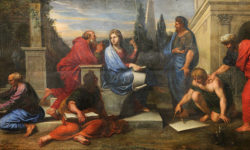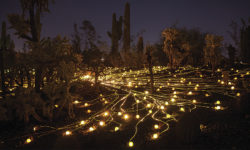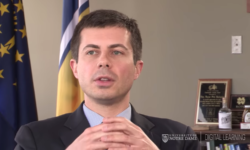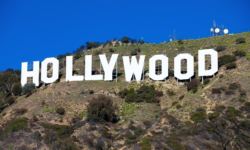Category: Visual Library
Frank Wilczek on Beauty & Truth
Philosophy as a Way of Teaching: A Handbook (by Dr. Jane Drexler)
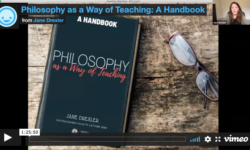
Philosopher Jane Drexler, PhD — Associate Professor of Philosophy at Salt Lake Community College — provides a wonderfully informative, relatable…and always entertaining (she’s a hoot!) overview of her approach to teaching, inspired by her unique life experience and philosophy as a way of life. This video was part of her 2020 Distinguished Faculty Lecture Award (in lieu of a longer discussion, which would have taken place in person if not for COVID).
A Process of Reflective Oblivion: Community, Philosophy & Art

This American Philosophical Association blog by Jeremy David Bendik-Keymer (inspired in large part by an interview with artist Misty Morrison on her exhibit “Oblivion”) offers some deeply reflective and inspiring insights about the importance of COMMUNITY to philosophical communities and their various expressions.
How Does Philosophy Guide & Shape Government?
A Phenomenology of Mass-Produced Things and Our Relation with the More-than-human World

In this paper, Henry Kramer, explores the human-technology relationship and argues that “our perception of mass-produced things, a perception unique to and only possible within technological culture, dulls our senses and de-emphasizes the basic materiality of all things, thereby discouraging connection and engagement with the more-than-human world.” An iteration of this paper was presented at the 16th Annual Gonzaga Graduate Philosophy Conference and received the Hutchins Award in Philosophy for best paper in the conference. It is featured here on our website by permission of the author. Read more here!
Theodor W. Adorno: The Culture Industry (Part 2)
Theodor W. Adorno: An Introduction (Part 1)

A founding member of the Frankfurt School and the philosophical style known as critical theory, Theodor W. Adorno’s contributions continue to have an impact on philosophical, sociological, and aesthetic thought. This article, written by Merlin volunteer and scholar Jonathan Drake, offers an introduction to his works and influence, as well as some important clarifications about his critique of western philosophy and the enlightenment.

